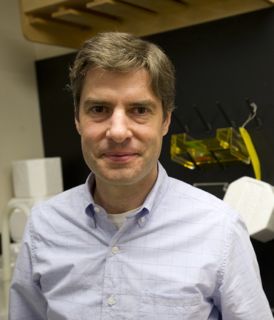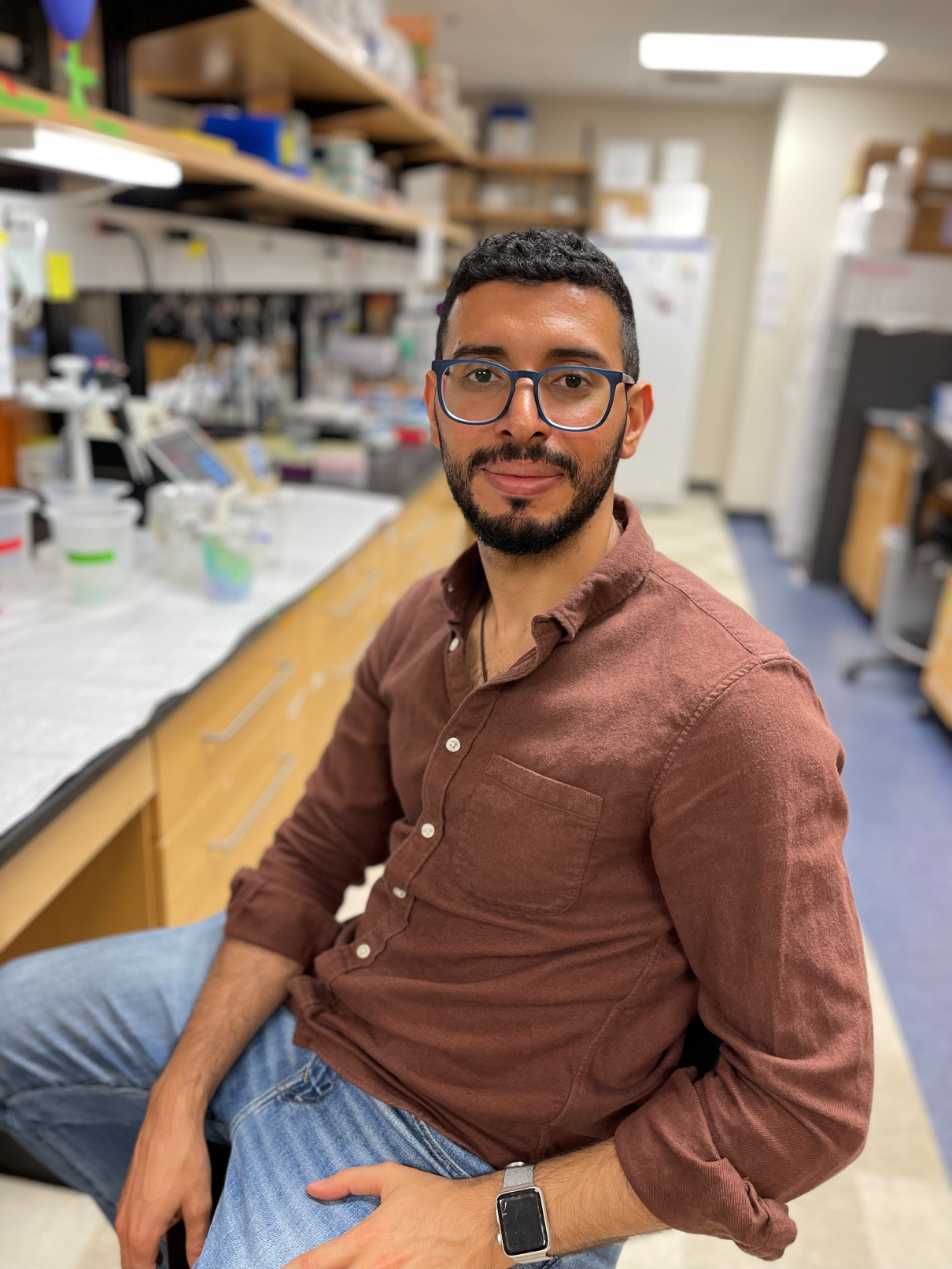
Robert wheeler, Ph.D.
Director
(207)581-2890
Dr. Wheeler came to the University of Maine from his position as a Post-doctoral Fellow at the Whitehead Institute for Research in Cambridge, MA. Dr. Wheeler teaches Infectious Disease and Immunology at the Undergraduate and Graduate levels. He is a graduate co-coordinator for MPS, MS and PhD programs, a member of the Graduate Board, Campus Representative for Goldwater Scholarships, Phi Kappa Phi Honors Society, a Fulbright Senior Scholar and an Investigator in the Pathogenesis of Infectious Disease for the Burroughs Wellcome Fund.
The Wheeler Laboratory studies host-pathogen interactions between the fungal pathogen Candida and the innate immune system, has published forty-four articles and completed eighteen extramurally-funded projects. Using the transparent zebrafish to directly observe how immune and fungal cells interact during infection, they discovered that immune cells restrict the ability of Candida to grow damaging filaments when the two meet in an infection, even though this doesn’t happen in a Petri dish. They also used zebrafish to identify fungal strategies for spreading infection through hitchhiking inside immune cells and popping out at their destination. Besides the zebrafish work, they study how Candida causes yeast infections in women and how Candida interactions with bacteria affect fungal virulence and susceptibility to antifungal drugs. The Wheeler Laboratory has trained seven PhD and two MS students, with two going on to tenure-track positions in academia and others taking leadership positions in industry. Over sixty undergraduate students have completed authentic research projects in the laboratory, with over ten earning authorship on peer-reviewed publications.

Zhengxin ma, Ph.D.
Manager
(207)581-2802
Zhengxin was first drawn by fluorescent microscopy during her graduate studies at the University of Florida, where she earned a M.S. in animal nutrition and a Ph.D. in animal microbiology, studying how to mitigate antimicrobial-resistant pathogens. She used fluorescent microscopy to understand bacteria and antimicrobial interactions in mammalian cells and the nematode Caenorhabditis elegans. During her post-doctoral time at MDI Biological Laboratory, she further used the technique to understand the relationship between dietary restriction, translation, and aging using C. elegans as a model. Transitioning to a manager role at UMaine MIAC facility, she now provides technical training, oversees equipment operations, and collaborates across disciplines to optimize imaging protocols.

ahmed almaghasilah
Graduate Assistant
Ahmed is a Biomedical Engineering PhD student in the Clarissa Henry Lab at the University of Maine. He uses zebrafish as an animal model to study muscular dystrophies. He is investigating muscle growth defects associated with Dpm3. Additionally, he currently focuses on applying deep learning networks to automate image analysis and annotation of birefringence images in zebrafish. When he is not in the lab, you can find him working out at the gym, reading Dune, hiking around Bar Harbor, and traveling.
